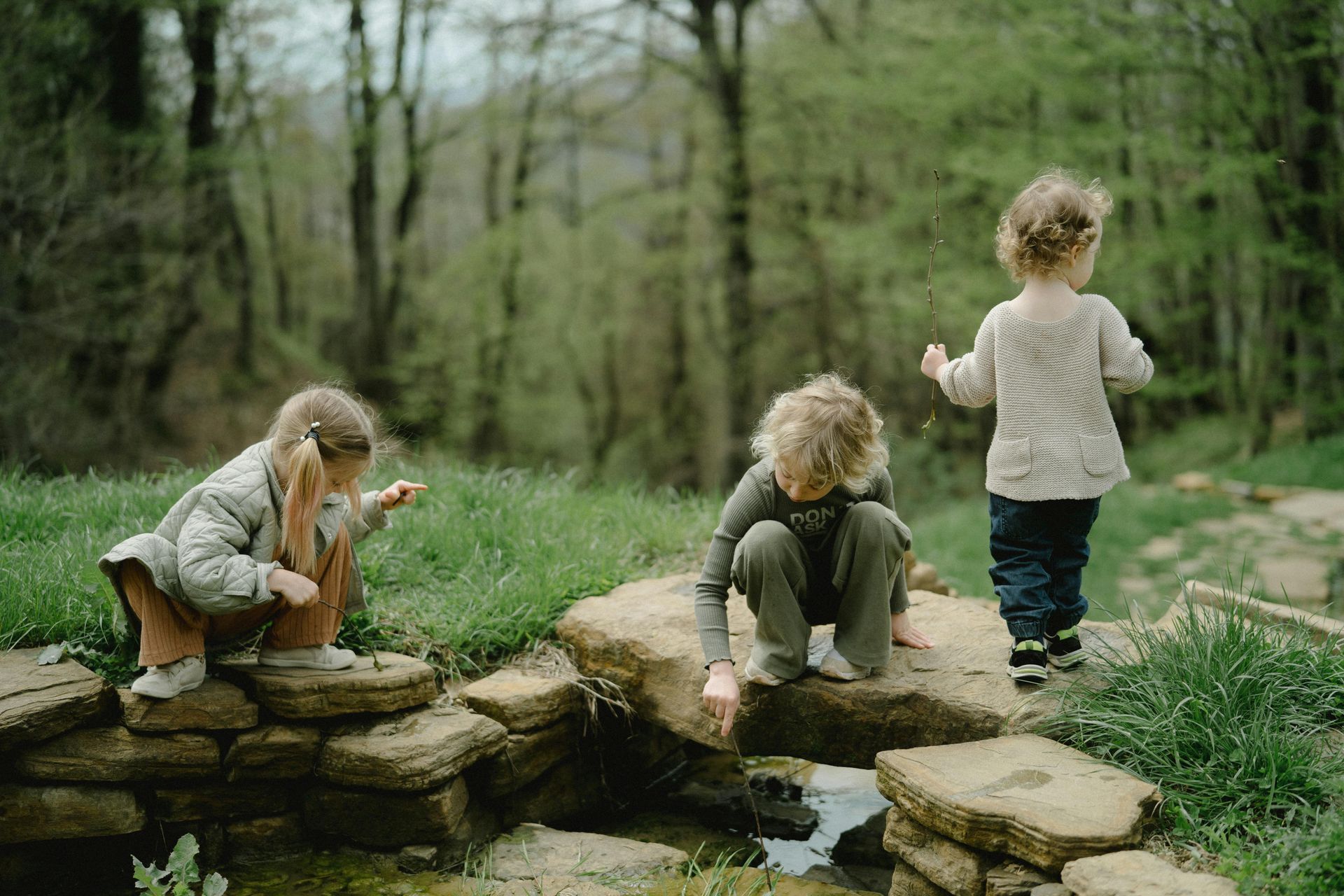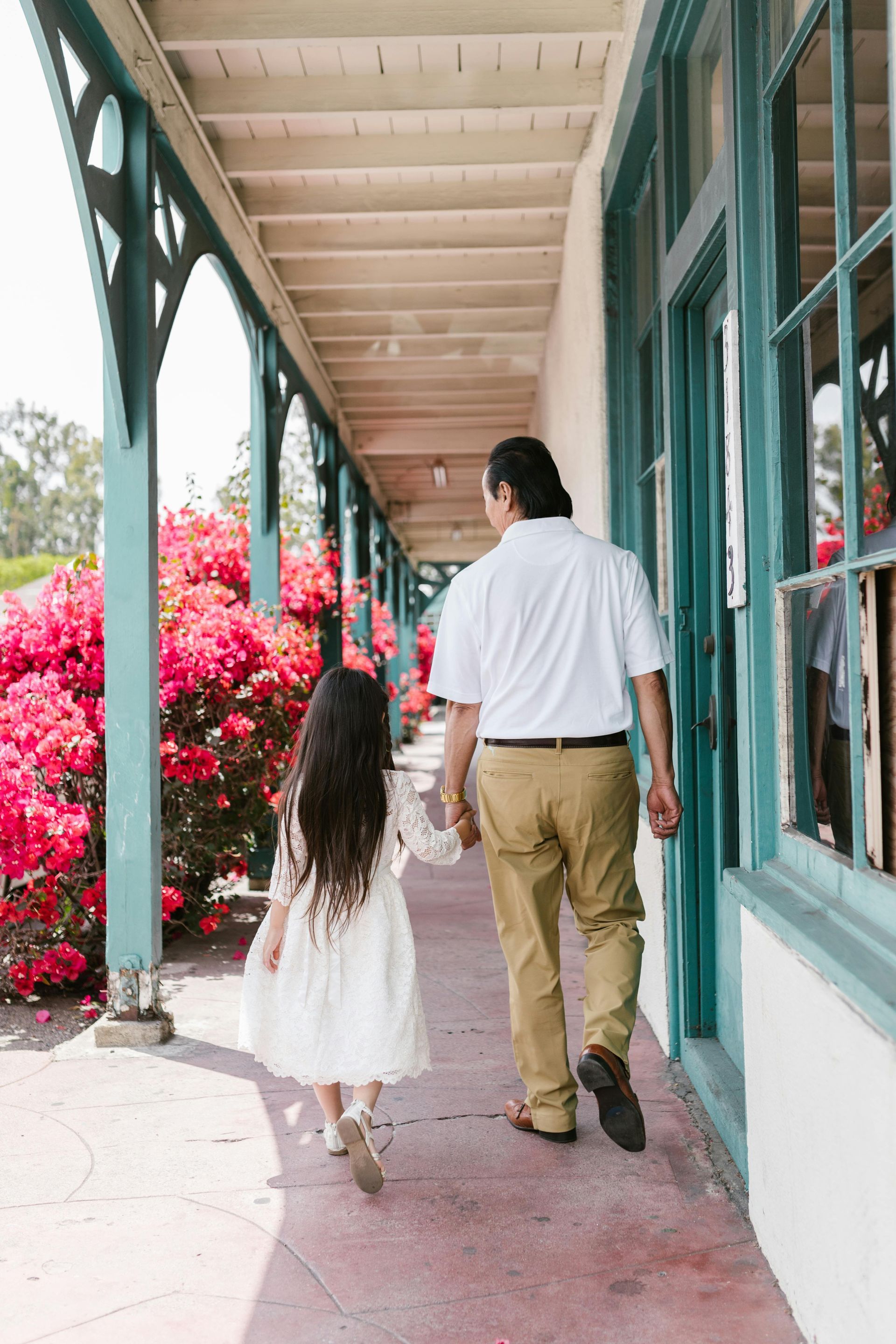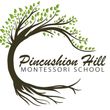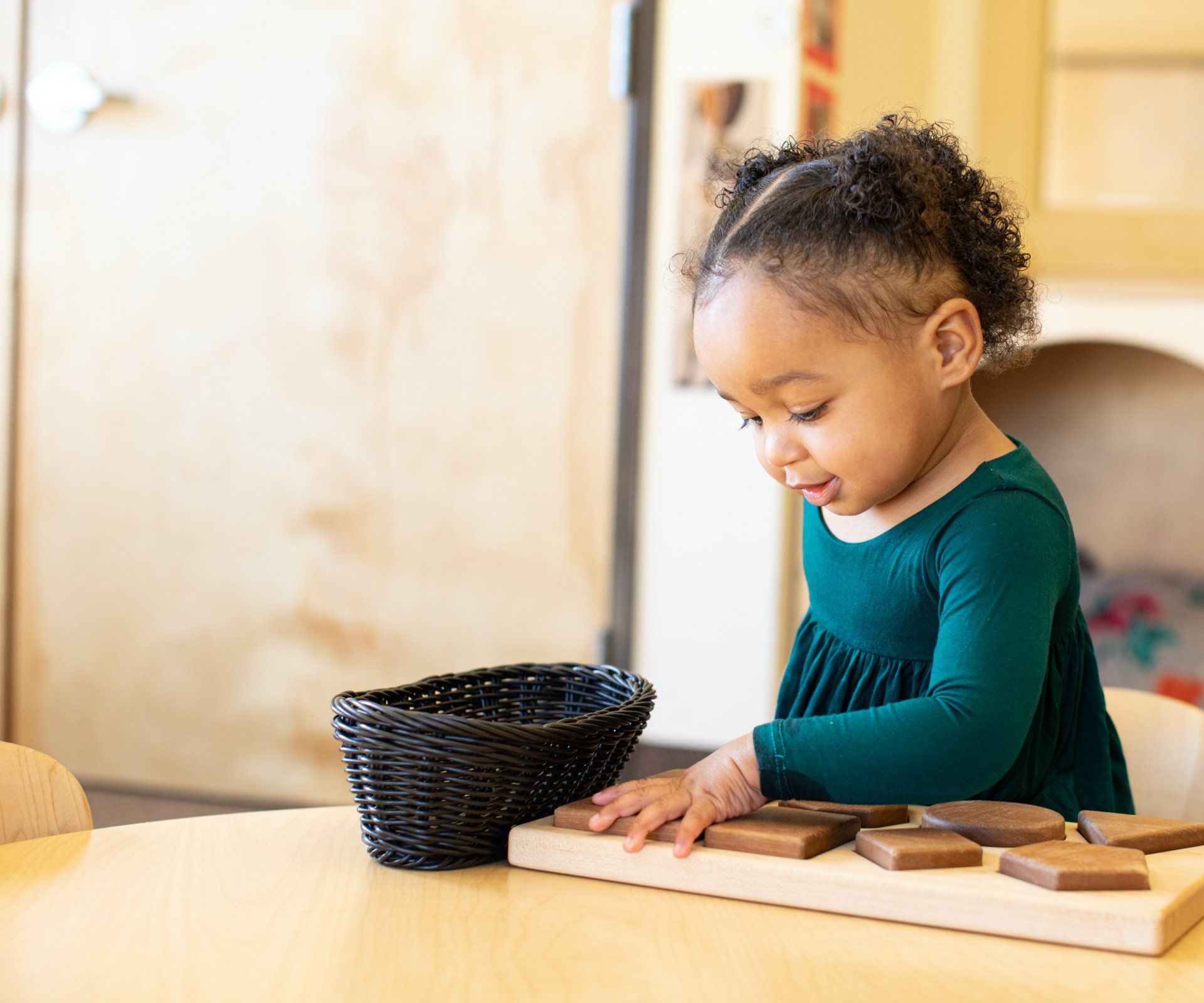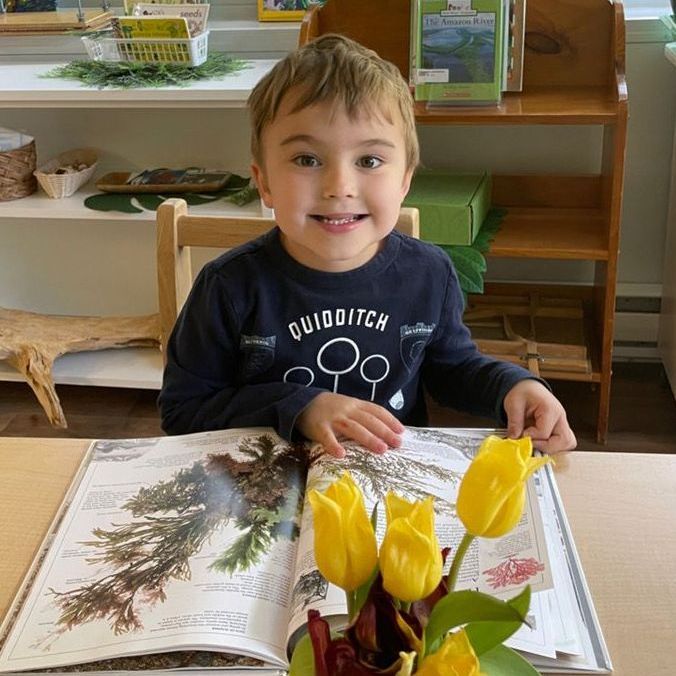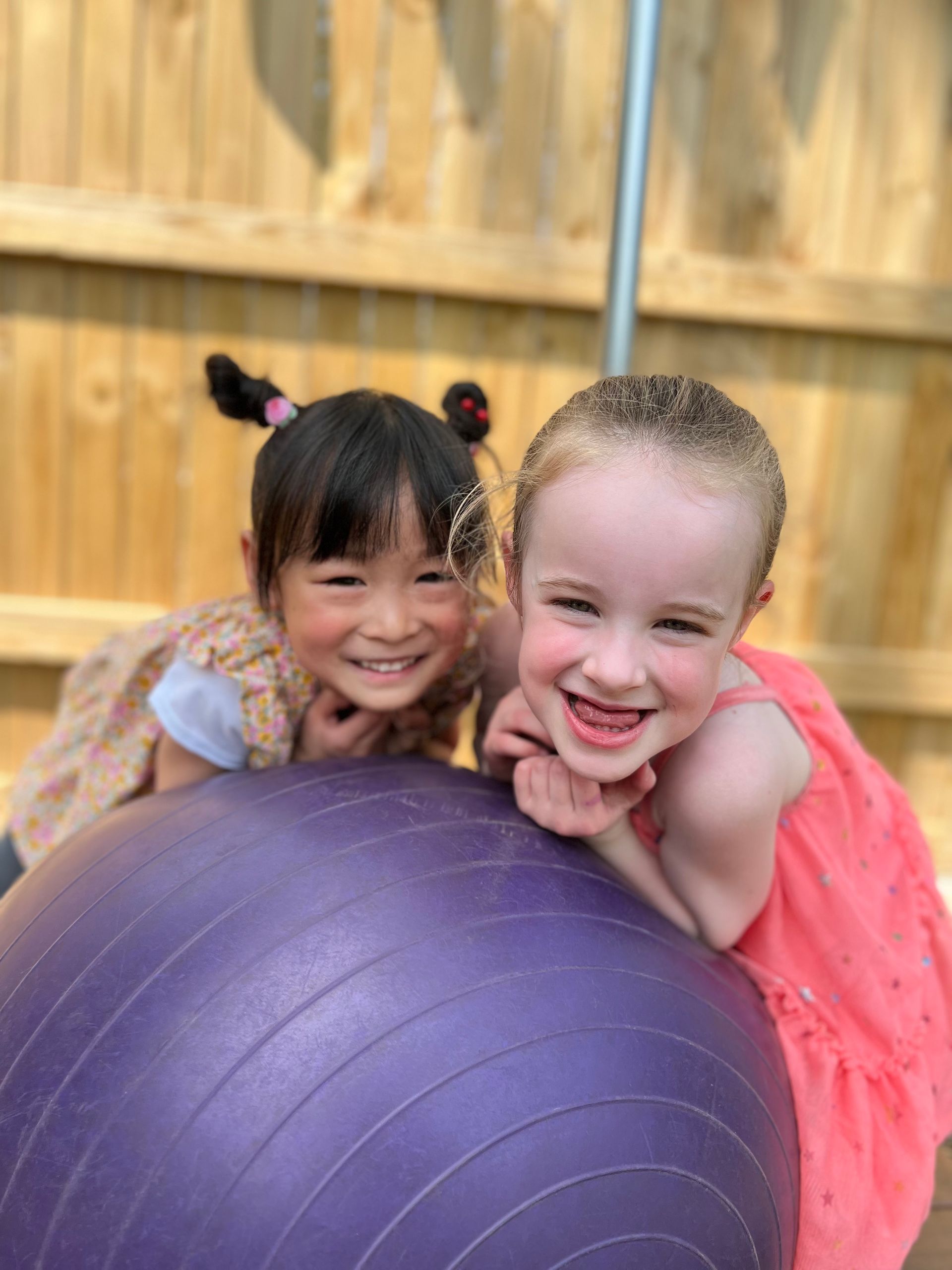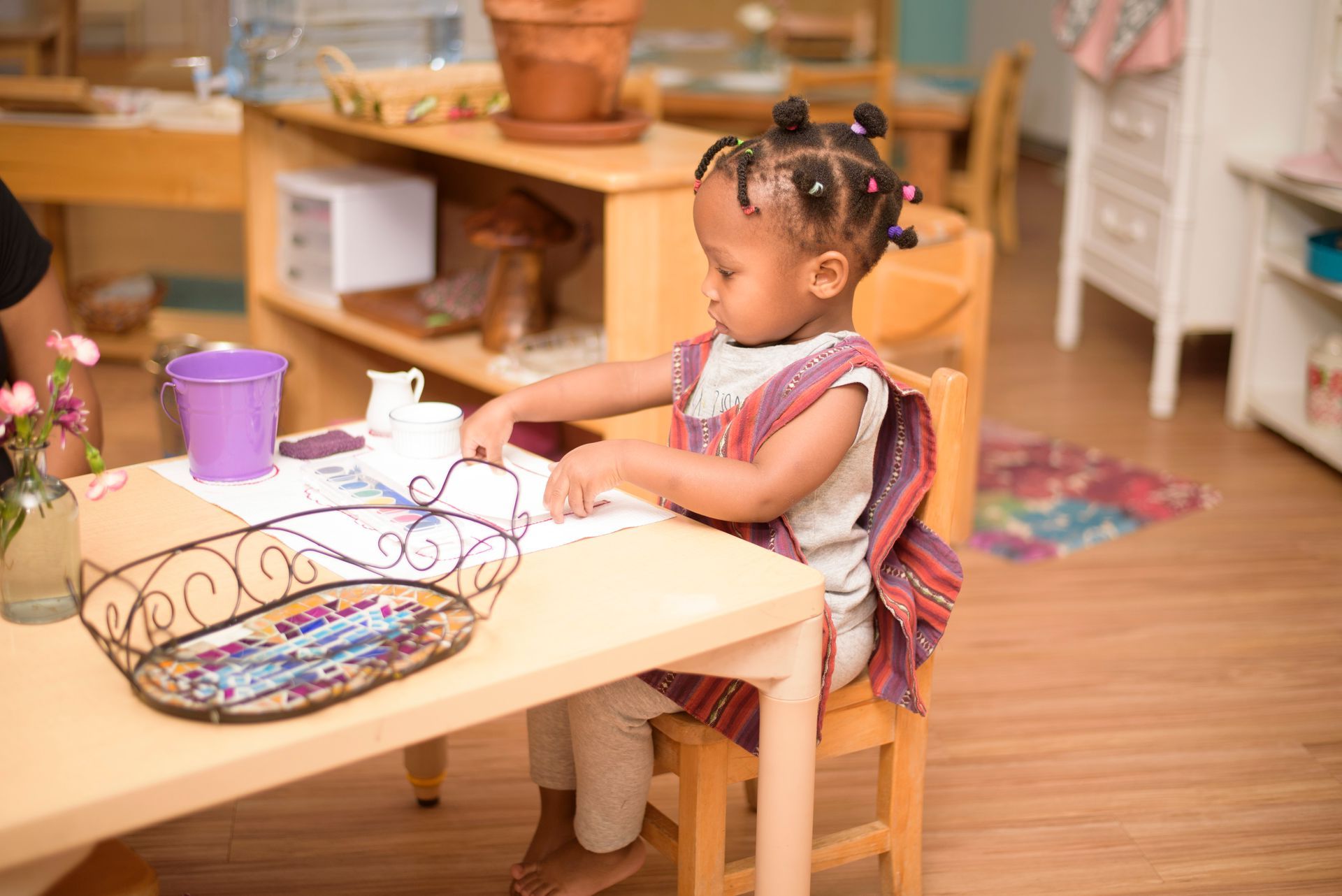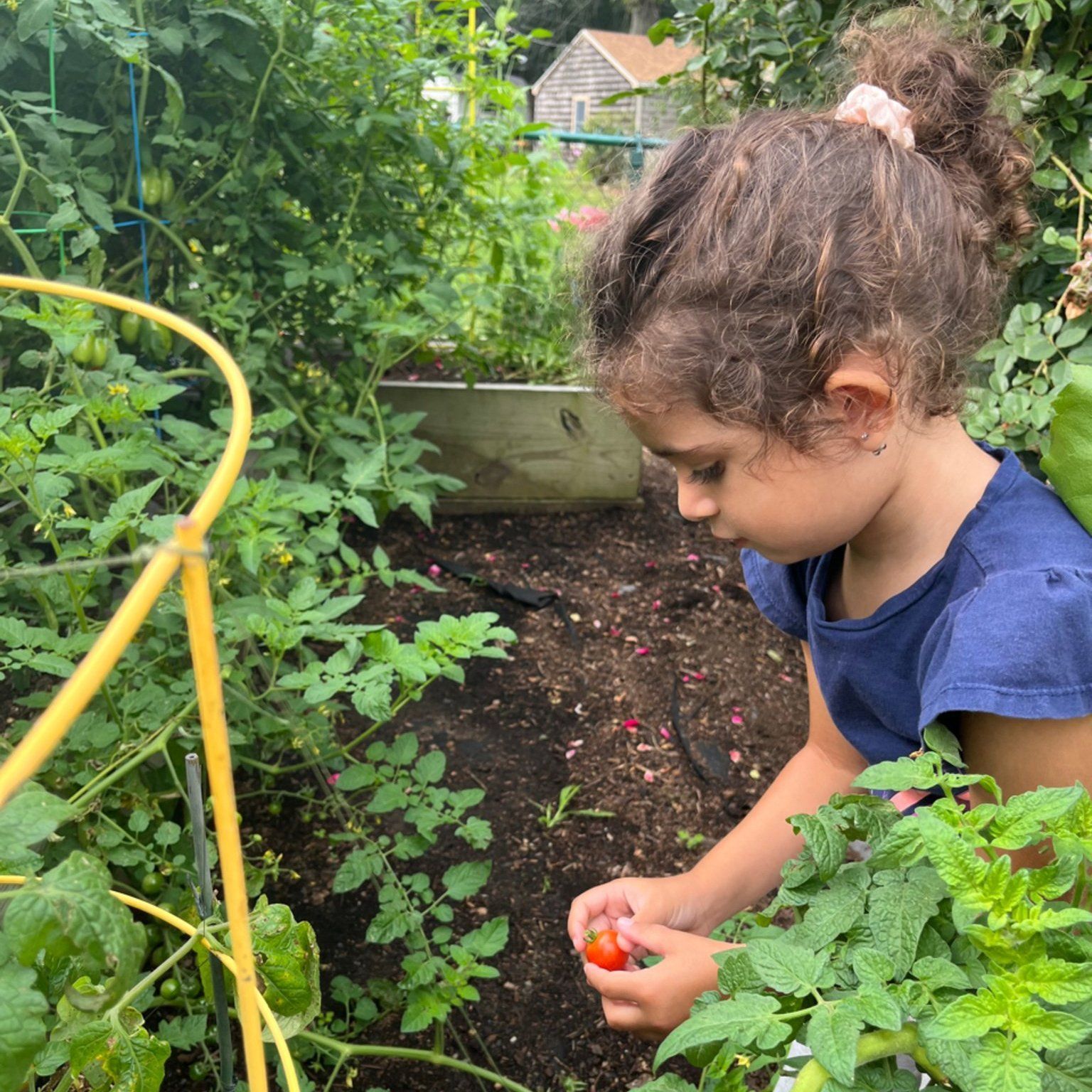About Us
is a legacy private school, educating children since 1962. We offer an exemplary education for children ages 18 months through 6 years based on the Montessori method, including carefully curated garden spaces. Pincushion Hill Montessori School is deeply committed to providing a nurturing and challenging environment where children are encouraged to learn at their own pace, supported by their peers and teachers. Our children love school!
Inside the school, our unique hand painted wall murals winding up and down the staircases represent two distinctive science themes. The first wall mural covers the five oceans of the world. This mural is inclusive of much of the marine biodiversity of our vast seas and oceans. In addition to the depictions, the mural includes real physical specimens as well as information cards. The second mural covers all the major terrestrial biomes and the plant and animal species who live in them. Each mural has a paired satellite map of the world and specimen booklets for the children to complete.
We provide an individualized, multi-sensory curriculum based upon the belief that all children can reach their personal and academic potential. As an authentic Montessori school, we nurture intelligence, curiosity, and imagination while supporting and developing each student’s unique talents. We are passionate about cultivating your child’s love of learning. Each and every day, our students arrive at school excited to greet their friends and participate in new discoveries. They are truly the inspiration for the thoughtful work we do creating vibrant spaces to engage in genuine Montessori education.
Why do so many families choose Montessori?
Individualized Learning
Lessons are designed and given to each child when they are most ready to learn.
Whole Child Education
Social, emotional, and physical development is emphasized along with academic skills.
Supported by Research
Current neurology and human development research consistently backs Montessori.
The Montessori Difference
Discover the 5 biggest limitations with traditional education and how Montessori can unleash your child's independence, confidence, and love for learning.
Sign up for our FREE 5-day email course.
Our Programs
Visit Us!
We invite you to visit our school, meet the teachers, and observe the children in their classrooms. We encourage you to ask questions and learn about the opportunities available at all levels of our programs.
Parent Reviews
Mrs. Kovago, Thank you for being such a steady and supportive guide for our child. We have noticed the difference in how he approaches challenges with more patience and curiosity. We are grateful for the care, your guidance and heart you bring to teaching.
— Ramesh Hariharan
Mrs. Kovago, Thank you for creating a rich and thoughtful environment for learning. We are grateful for the way you blend nature, meaningful materials and gentle guidance into your lessons making it a beautiful experience for our child, helping her to explore, inquire and wonder. Thank you for the connection
- Ramya Roopini Ravi
Our Blog
